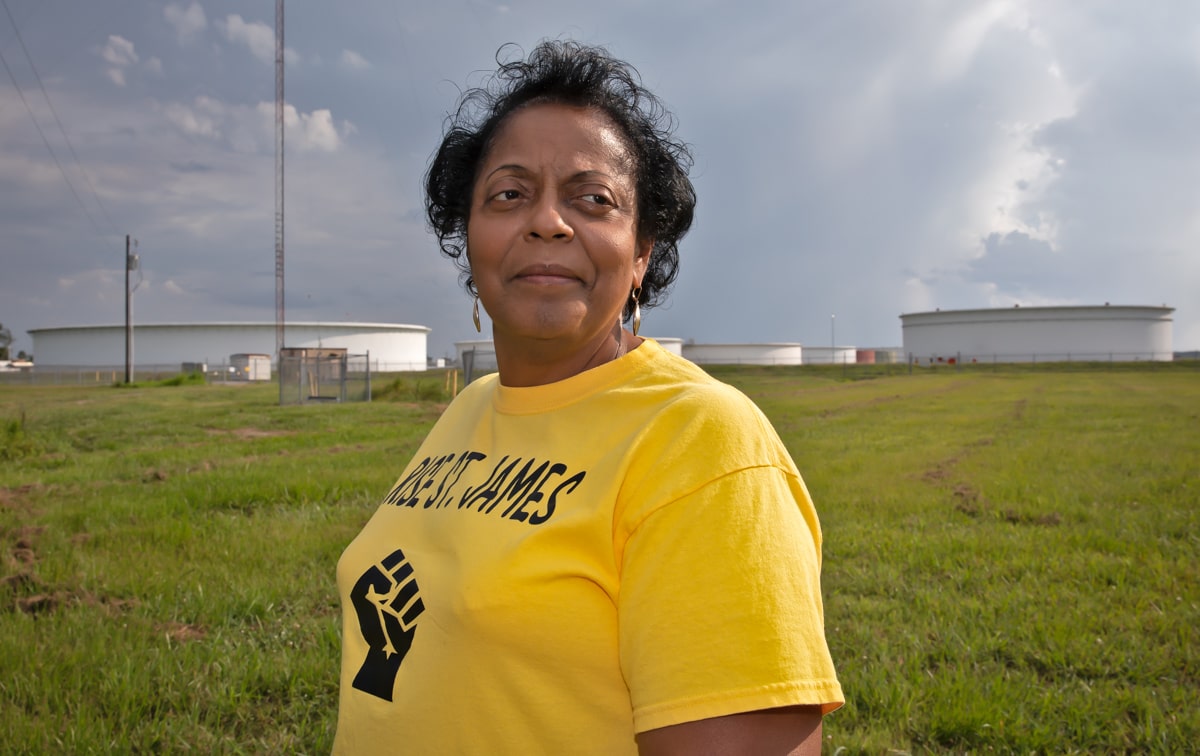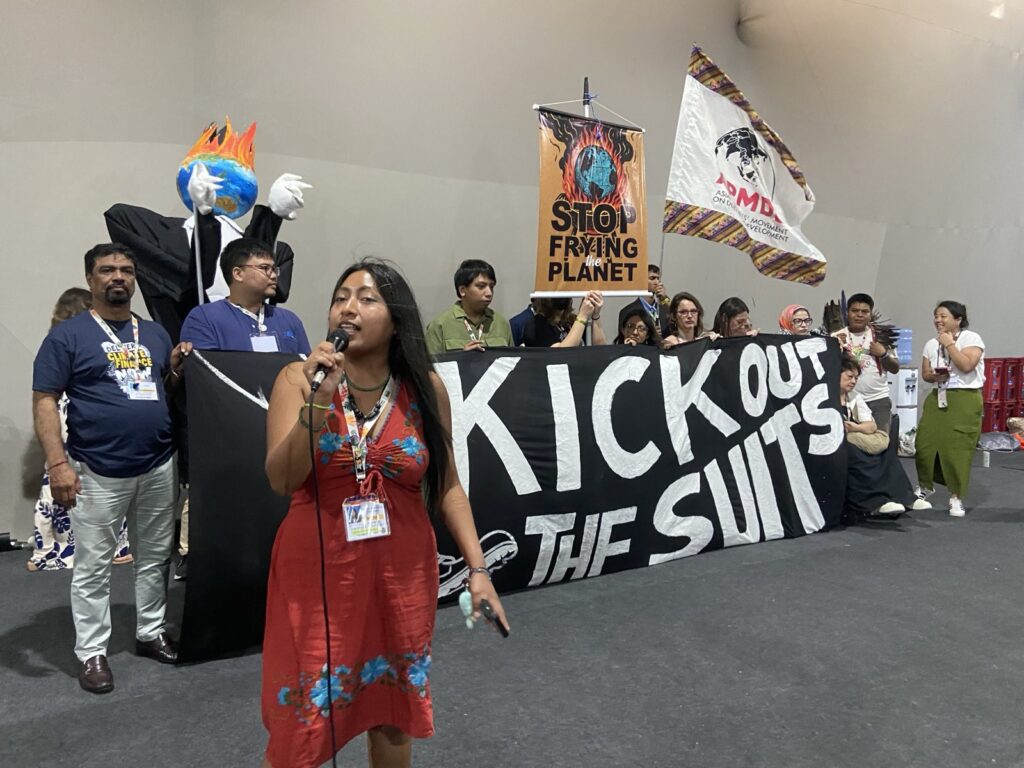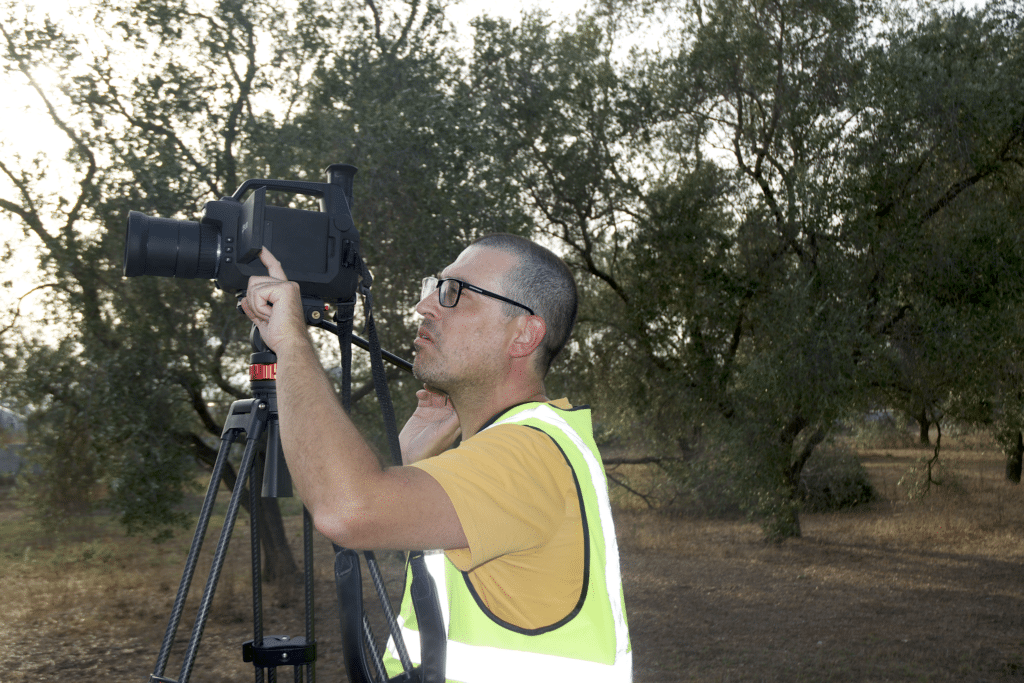Sharon Lavigne of St. James Parish, Louisiana, is one of six winners of the 2021 Goldman Environmental Prize, in recognition of her work within the “Cancer Alley” community where she was born and now, at 68 years old, continues to mobilize for environmental justice.
Lavigne, who founded the community group RISE St. James in 2018, worked for nearly 40 years as a special education teacher at St. James High School before being drawn into the fight against heavy industry — and its public health and environmental impacts — in her home town alongside the Mississippi River.
The Goldman prize, sometimes called the “Green Nobel Prize,” is given annually to six environmental advocates, one from each of the world’s six inhabited continental regions. The prize recognizes “grassroots environmental heroes” — including many whose work puts them at severe risk of retaliation — who have helped to create concrete changes, including protecting endangered ecosystems, combatting destructive industrial projects, and promoting environmental justice.
This year’s Goldman honorees have claimed a wide array of environmental victories worldwide. Kimiko Hirata, 50, fought coal plant construction in Japan following the 2011 meltdown of the Fukushima Daiichi nuclear power plant. Liz Chicaje Churay, 38, successfully advocated for the 2018 creation of a national park in Peru that’s as large as Yellowstone National Park but in the Amazon rainforest. Gloria Majiga-Kamoto, 30, campaigned for Malawi to reinstate a ban on single-use plastics in 2019 and then for the government to enforce that ban. Thai Van Nguyen, 39, fought to protect threatened species including extraordinary animals like pangolins, and Maida Bilal, 39, whose efforts, the Goldman foundation said, to protect the Kruščica River in the former Yugoslavia “evolved into a powerful symbol of peaceful resistance — among ethnic Bosnians, Serbs, Croats, Roma, and others — in a region still recovering from the aftermath of a brutal war.”
Winners are awarded $200,000 to continue their work and also benefit from, for example, the organization’s Defense of Prize Winners program, which seeks to protect the safety and security of awardees.
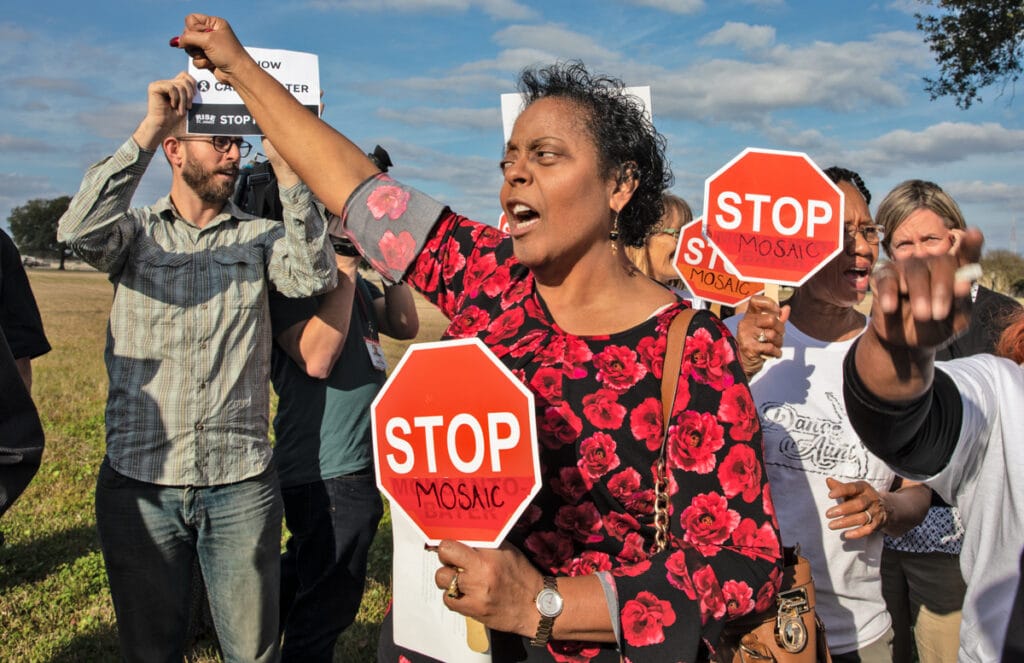
Wangari Maathai, who later became a Nobel Peace Prize Laureate, won the Goldman Prize in 1991. Those honored by the Goldman Prize achieved their victories for the environment despite the all-too-real threat of retaliation that can be dangerous or even deadly. Ken Saro-Wiwa, the Nigerian author who led an environmental and human rights movement and — with the alleged complicity of Royal Dutch Shell — was hanged in 1995. Berta Cáceres, who fought dams in Honduras and was awarded the Goldman Prize in 2015, was assassinated in 2016. (The alleged mastermind of Cáceres’ murder, president of dam company Desa, was, as of mid-May, on trial in the Honduran Supreme Court).
Lavigne is not the first Goldman prize winner to hail from the notorious “Cancer Alley” in Louisiana. In 2004, Margie Richard of Norco, Louisiana, co-founder of the environmental watchdog Louisiana Bucket Brigade, was the first Black American to be awarded the Goldman Prize for her efforts to force Shell to pay to relocate residents living nearest the company’s heavily polluting Norco chemical plant.
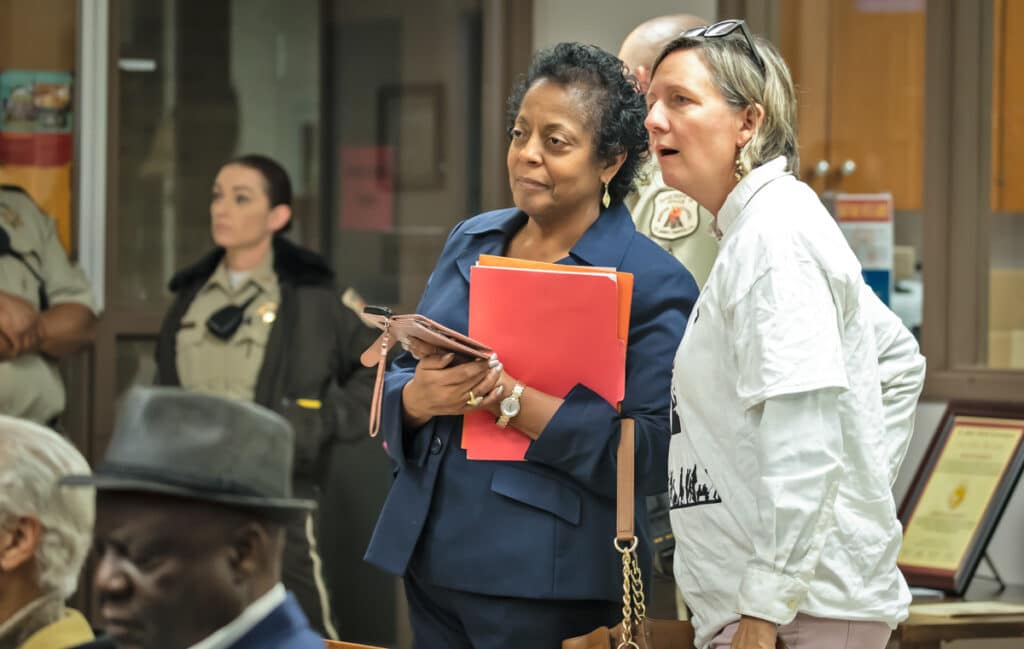
‘It Would Just Kill Us All’
Lavigne got her start in the environmental movement after attending a school board meeting in 2015, where she met members of a local organization called H.E.L.P. (Humanitarian Enterprise of Loving People) and started learning more about the pollution problems in St. James Parish.
“With more than 20,000 residents, the parish has among the highest concentrations of toxic chemicals in the country,” the Goldman Environmental Foundation wrote, describing Lavigne’s home. “Nighttime chemical releases causing toxic ‘yellow rain’ are common,” it added, describing a yellow fog that locals have said often leaves behind dead birds on their lawns. Parts of the region suffer from unusually high cancer risks from polluted air that, according to the United Nations, will worsen if new petrochemical plants are built.
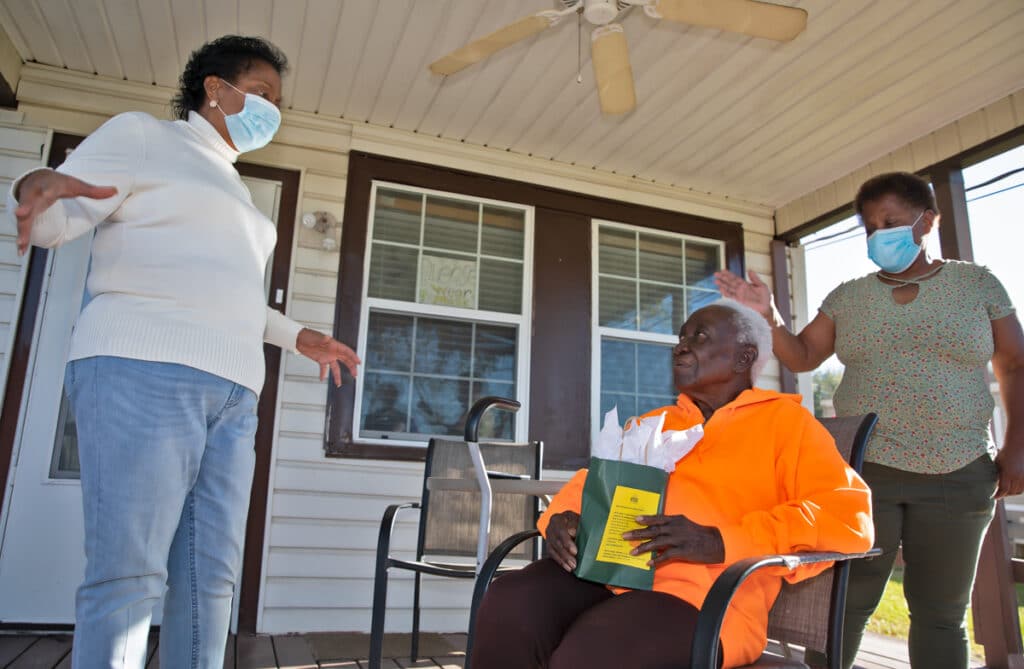
As the shale oil and gas rush spread across the U.S. over the past decade, reaching into the Permian basin of Texas and New Mexico, petrochemical manufacturers, oil refiners, and fossil fuel exporters began planning to expand their operations — particularly along the Gulf Coast. Between 2016 and 2018 alone, regulators in Louisiana and Texas approved 31 new oil, gas, and petrochemical plants along the Gulf Coast, drawing national attention for the climate-altering impacts of the cumulative 50 million tons of additional greenhouse gas emissions each year that those projects would produce.
In 2018, Lavigne learned about the plans petrochemical companies had for St. James, including a $1.25 billion plant proposed by a Chinese company, Wanhua.
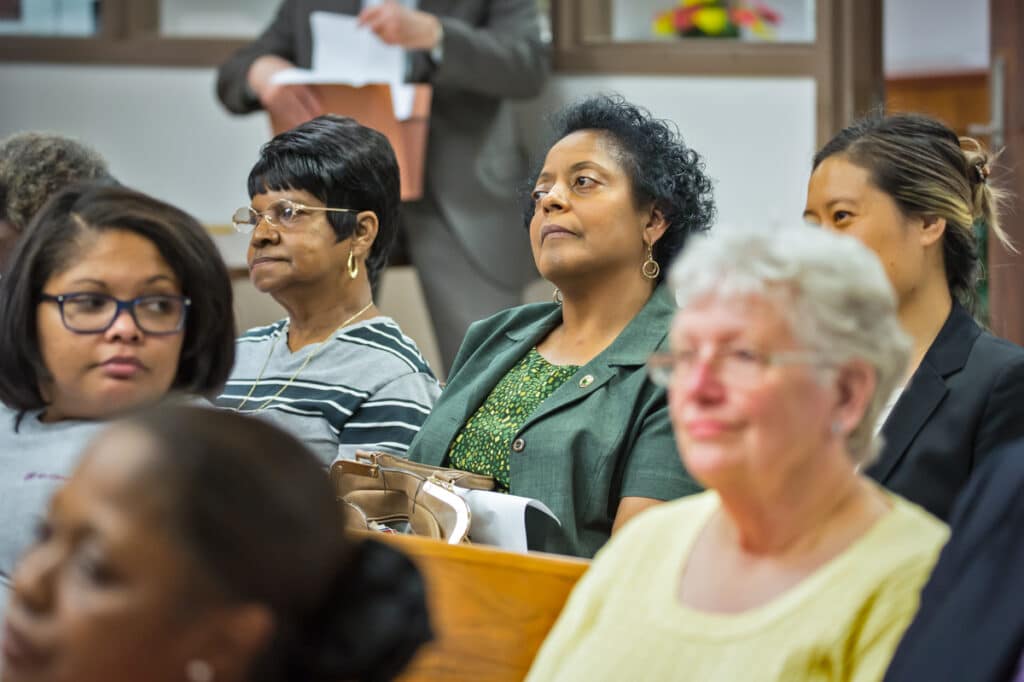
“I prayed,” Lavigne told DeSmog. “And that’s when I got my answer. Because I thought that we’d have to pack up and move because of the industry, because there was too many in here already to add another one, it would just kill us all. So that’s when I went into prayer.”
Lavigne founded RISE St. James in October 2018, splitting off from other organizers who believed that it would be impossible to defeat a major petrochemical project, concluding that it might be wisest to focus on helping people relocate. “The fight is in me,” Lavigne told DeSmog’s Julie Dermansky, who profiled Lavigne’s work in January 2020, as she looked back at a September 2018 direct action and march through the Burton Lane neighborhood of St. James with her family and neighbors. “I can’t explain the shift, but I knew I was ready to take the lead.”
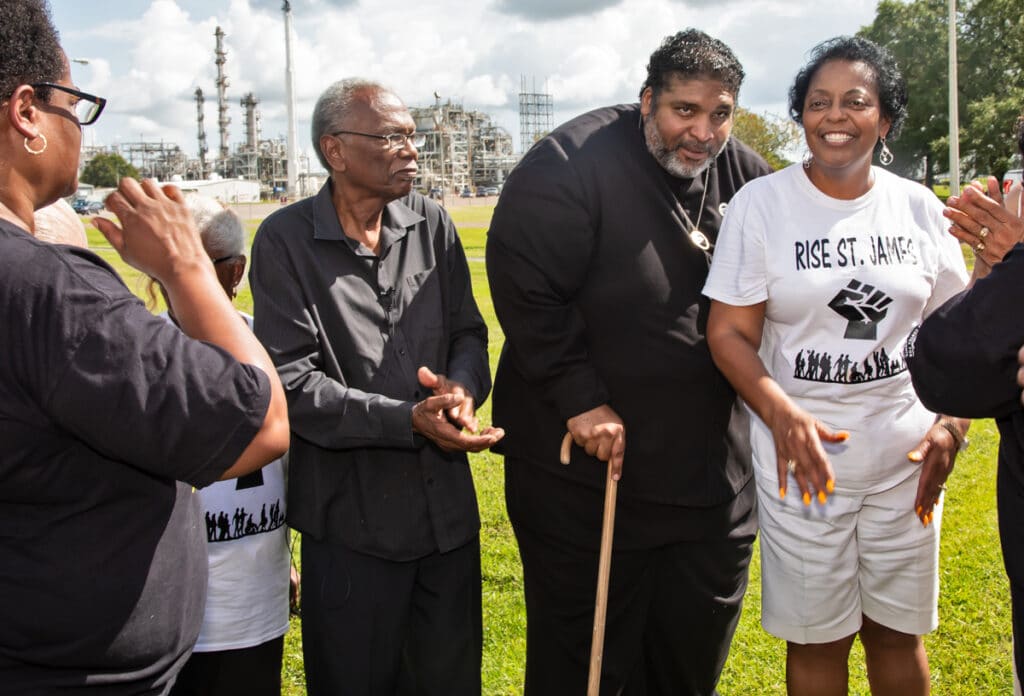
Lavigne rose from a line of fighters for justice. Her parents organized in St. James during the Civil Rights era.
“He was the only man that was brave enough and secure enough to integrate an all-white school,” Lavigne said about her father, Milton Cayette, Sr., a sugarcane farmer who became the president of the local NAACP chapter and who escorted seven Black mothers and their children to St. James High School in 1966. Her father faced down death threats and his truck was set on fire. Lavigne went on to become an educator herself.
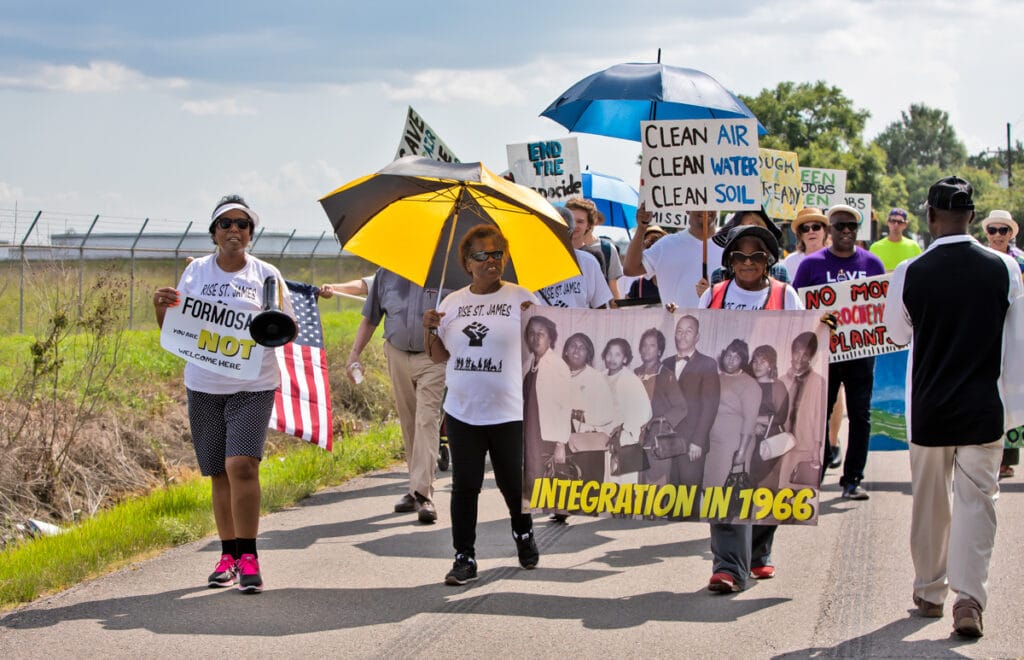
Asked if she had looked to other role models as she took on Wanhua, Lavigne said she had a singular focus. “I was gonna stop this plant. That’s all I knew,” she said. “I never thought of taking lessons from someone or let me see what someone else did, we didn’t have time for that. We were just trying to stop the plant.”
‘They Backed Down’
RISE St. James drew on an organizing toolkit that might seem familiar to grassroots activists anywhere. “We had a march, spoke out loud, spoke out in front of the community, and went to the Parish council meetings,” Lavigne said, “and spoke out at the Parish council meetings, we didn’t just go to the meeting, we spoke up.”
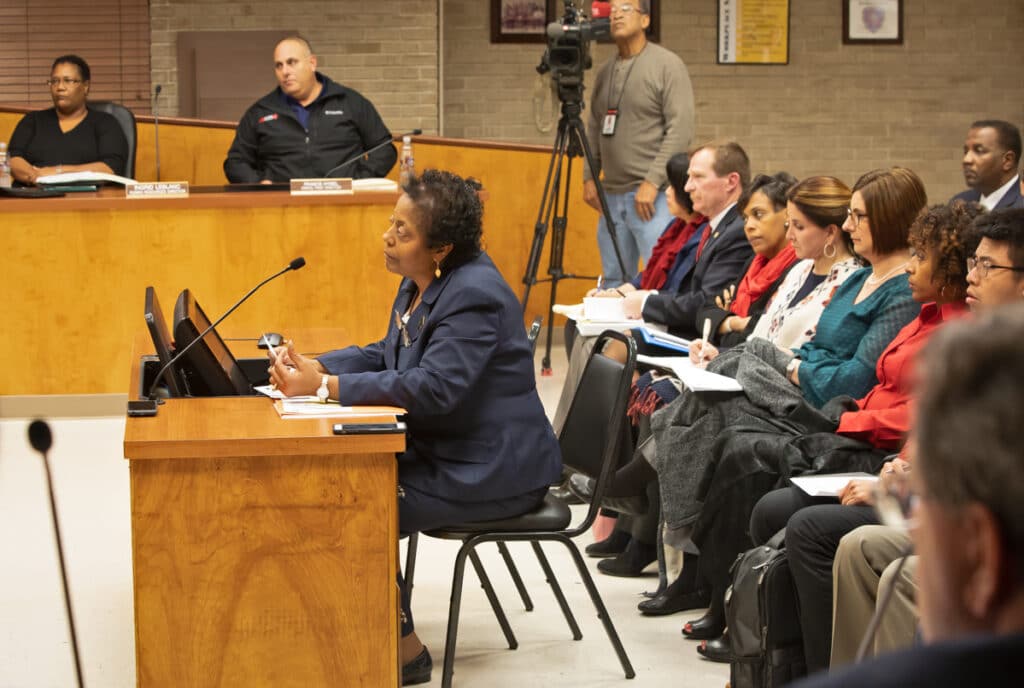
That project’s backer, the Chinese firm Wanhua, pulled out of St. James in September 2019.
“We defeated Wanhau,” she said. “They backed down.”
By then Lavigne had taken on a battle over a plant 10 times that size. FG LA LLC, part of the Formosa Plastics Group, had begun planning a petrochemical plant in St. James that it named the “Sunshine Project,” after a nearby bridge. As of December 2020, the sprawling industrial complex was projected to cost up to $12 billion — and would be built just a few miles from Lavigne’s home, where it would pump out up to 800 tons of toxic air pollutants and 13.6 million tons of greenhouse gases each year.
The land that Formosa bought is also a former plantation — and researchers had discovered the unmarked graves of enslaved people on the land where Formosa planned to build. “The vast majority of the industrial facilities in ‘Cancer Alley’ are on the grounds of former plantations,” researcher Justin Kray told The Intercept in December 2019. “The areas where large petrochemical companies want to locate are large, undivided tracts of land. And these are the undivided tracts.”
Last summer, Lavigne and other members of RISE St. James arrived at the site where enslaved people were believed to have been buried for a memorial service on Juneteenth, the holiday commemorating the end of legal slavery outside of prisons in the U.S.
The visit to the site where Lavigne said her ancestors were buried took place just after she and others successfully campaigned for Louisiana’s governor to veto a bill that would have raised the criminal penalties for trespassing on so-called “critical infrastructure,” including fossil fuel pipelines and petrochemical plants.
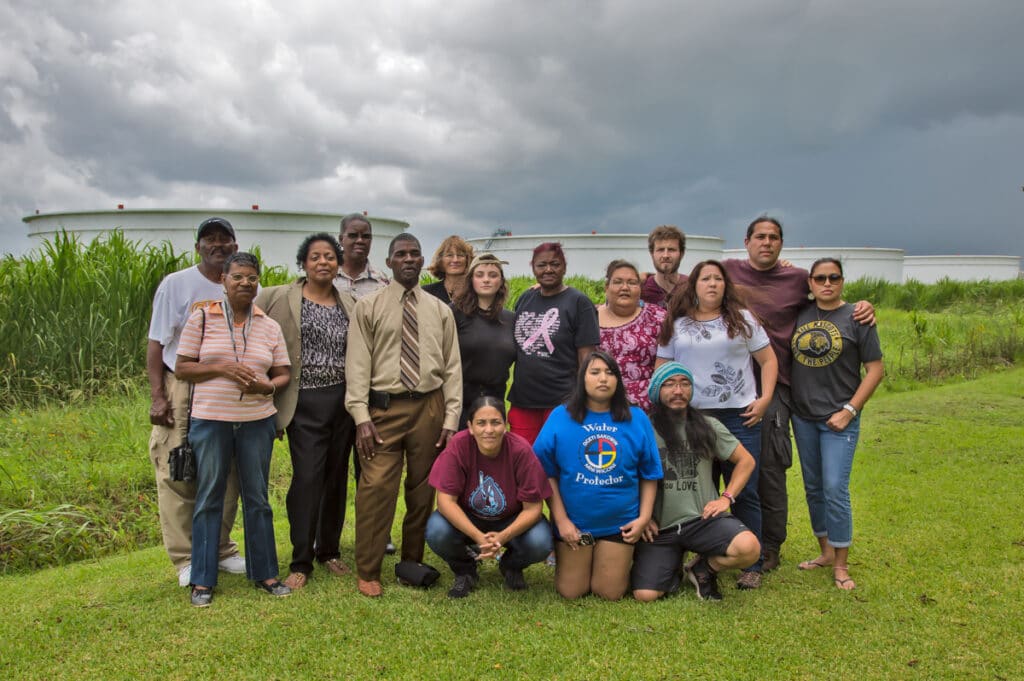
In the year since, momentum has continued to build against Formosa’s Sunshine Project. “Energy industry analysts have declared that the massive petrochemical complex proposed by Formosa Plastics in Louisiana’s St. James Parish is ‘financially unviable’ due to market conditions, legal and regulatory uncertainty, and a groundswell of political opposition and accusations of environmental racism that are gaining international attention,” Truthout reported in March.
“Right now, it’s just at a standstill,” Lavigne said. Another RISE St. James member has challenged the plant’s permits in court and earlier this month Judge Trudy White gave state environmental regulators 90 days to consider the evidence presented in that challenge. “They used data from 2014. We told them to go back and look at more recent data.”
RISE St. James is also pushing the U.S. Army Corps of Engineers to revoke its permit for Formosa’s project — and in May, attorneys general from five states signed onto that call, saying the Corps needed to more closely consider not only the impacts on the residents of St. James, but also the ways that climate impacts span across jurisdictions.
Lavigne’s advice for others living near fossil fuel projects is simple: “Tell them to be vigilant of what’s going on in their community,” she said. “If they see stuff that’s going on that’s not right, speak up. Don’t just sit around and say somebody else should do it, you go out and do it. Cause I did that.”

Asked if there was anything else people should know about her, Lavigne, who attends St. James Catholic Church in St. James, turned to her religious faith.
“Just tell them I’m led by God,” she said.
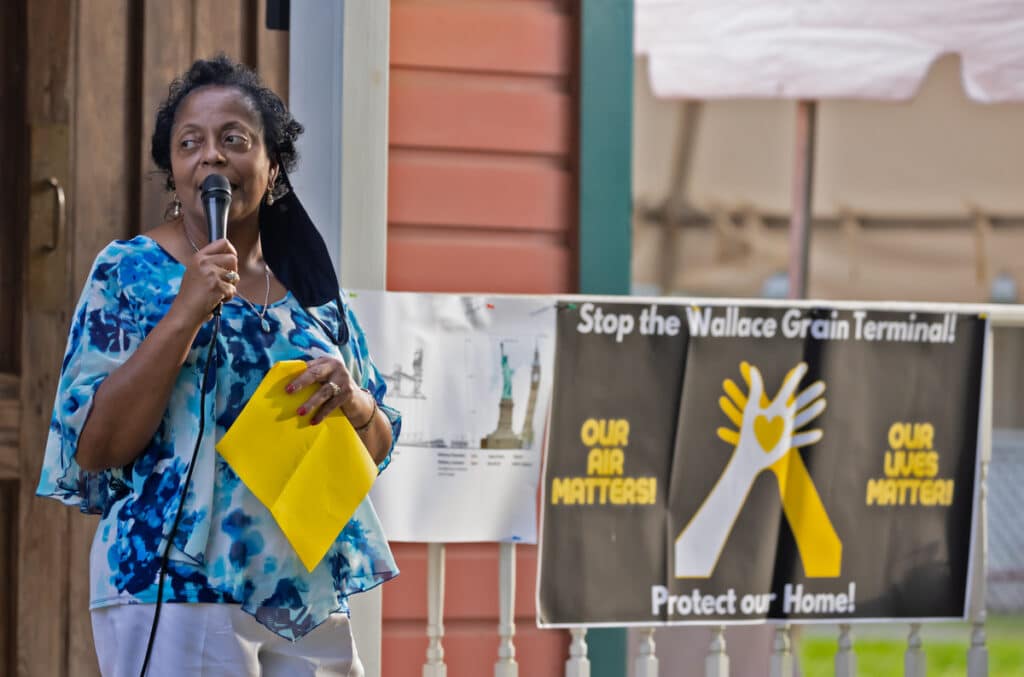
Subscribe to our newsletter
Stay up to date with DeSmog news and alerts


